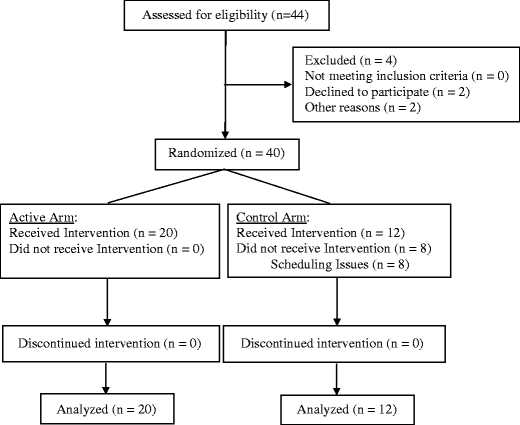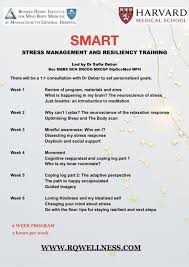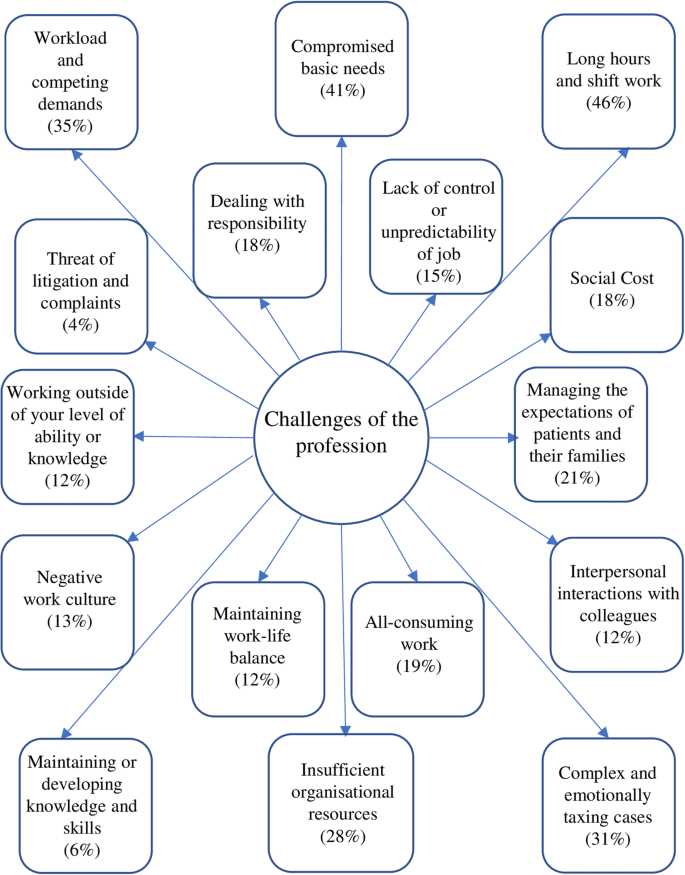
The faculty members of the Department of Medicine often face high levels of stress due to the demanding nature of their work. Long hours, heavy workloads, and the pressure to stay up-to-date with the latest medical advancements can take a toll on their mental and emotional well-being. However, it is crucial for these faculty members to effectively manage stress and build resilience in order to maintain their productivity and overall job satisfaction.
Resilience training plays a vital role in helping faculty members develop the skills and strategies needed to cope with stressors effectively. By learning how to bounce back from challenges, setbacks, and difficult situations, faculty members can better navigate the demands of their profession and maintain a healthy work-life balance. Resilience training equips them with the tools to identify and address stress triggers, manage their emotions, and cultivate a positive mindset.
In addition to resilience training, effective stress management techniques are essential for the well-being of the Department of Medicine faculty. Stress management techniques such as mindfulness, relaxation exercises, and time management strategies can help faculty members reduce their stress levels and enhance their overall quality of life. These techniques enable them to prioritize their tasks, improve their focus and concentration, and find healthy ways to unwind and recharge.
Implementing effective stress management and resilience training programs for the Department of Medicine faculty is crucial not only for their individual well-being but also for the success of the department as a whole. When faculty members are equipped with the necessary skills to manage stress and build resilience, they are better able to provide high-quality education and mentorship to medical students, engage in research and academic endeavors, and contribute to the advancement of medicine. Prioritizing the mental and emotional well-being of the faculty ultimately leads to a healthier and more productive academic environment.
Understanding the Importance of Stress Management

Stress can have a significant impact on the overall well-being and performance of faculty members in the Department of Medicine. The demanding nature of their work, combined with the pressures of research, teaching, and patient care, can lead to high levels of stress. Therefore, it is crucial for faculty members to understand the importance of stress management and develop resilience skills to effectively cope with these challenges.
Resilience training provides faculty members with the tools and strategies to build their resilience and effectively manage stress. By developing resilience skills, faculty members can enhance their ability to bounce back from setbacks, adapt to change, and maintain a positive outlook in the face of adversity. This not only improves their well-being but also enables them to perform at their best and provide high-quality care to their patients.
Stress management is essential for maintaining physical and mental health. Chronic stress can contribute to the development of various health problems, including cardiovascular disease, depression, and burnout. By implementing effective stress management techniques, such as mindfulness, relaxation exercises, and time management strategies, faculty members can reduce the negative impact of stress on their health and well-being.
Furthermore, stress management can improve work-life balance for faculty members. By effectively managing stress, faculty members can allocate time and energy to various aspects of their lives, including their work, family, and personal interests. This helps prevent burnout and promotes a sense of fulfillment and satisfaction in both professional and personal domains.
In conclusion, understanding the importance of stress management is crucial for faculty members in the Department of Medicine. By developing resilience skills and implementing effective stress management techniques, faculty members can enhance their well-being, performance, and overall quality of life. Investing in stress management training is a valuable investment in the health and success of faculty members and the department as a whole.
The Impact of Stress on Faculty Performance

Stress can have a significant impact on the performance of faculty members in the Department of Medicine. As professionals who are responsible for teaching, research, and patient care, faculty members face a high level of pressure and demands in their daily work. The constant juggling of multiple responsibilities, long working hours, and the need to constantly keep up with advancements in medicine can lead to high levels of stress.
When faculty members are under stress, it can affect their ability to focus, make decisions, and perform at their best. Stress can also lead to burnout, which can have long-term negative effects on the individual’s mental and physical health. Burnout can result in decreased productivity, increased absenteeism, and a higher turnover rate among faculty members.
Resilience training and stress management techniques are essential in helping faculty members cope with the demands of their work and reduce the negative impact of stress. By providing faculty members with the tools and resources to manage stress effectively, the Department of Medicine can help improve faculty performance and overall job satisfaction.
Some effective stress management techniques include mindfulness meditation, exercise, and time management strategies. These techniques can help faculty members reduce stress levels, improve focus and concentration, and enhance overall well-being. Additionally, fostering a supportive work environment where faculty members feel valued and supported can also contribute to their resilience and ability to cope with stress.
It is important for the Department of Medicine to prioritize the well-being of its faculty members and provide them with the necessary support and resources to manage stress effectively. By doing so, the department can not only improve faculty performance but also create a positive and productive work environment for all.
Recognizing the Signs of Stress

Effective stress management is crucial for the well-being of department faculty members. Recognizing the signs of stress is the first step towards addressing and managing it effectively.
Stress can manifest in various ways, both physically and mentally. Some common physical signs of stress include headaches, muscle tension, fatigue, and changes in appetite or sleep patterns. Mentally, stress can lead to feelings of irritability, anxiety, or difficulty concentrating.
It is important for faculty members to be aware of these signs and to take them seriously. Ignoring or dismissing stress can lead to more serious health issues and decreased productivity. By recognizing the signs of stress early on, faculty members can take proactive steps to manage it and build resilience.
Department of Medicine faculty can benefit from stress management training that provides them with the tools and strategies to recognize and address stress effectively. Through such training, faculty members can learn techniques for relaxation, time management, and self-care, which can help them better cope with the demands of their roles.
By recognizing the signs of stress and actively seeking ways to manage it, department faculty can improve their overall well-being and contribute to a healthier and more resilient work environment.
Benefits of Resilience Training

Resilience training offers a range of benefits for faculty in the field of medicine. With the increasing demands and stressors associated with their roles, it is essential for faculty members to develop resilience skills to effectively manage stress and maintain their well-being.
One of the key benefits of resilience training is its ability to enhance stress management skills. Faculty members who undergo resilience training learn practical techniques and strategies to cope with stress and overcome challenges. This includes developing a positive mindset, practicing self-care, and utilizing effective stress reduction techniques.
In addition, resilience training can improve the overall mental health and well-being of faculty members. By learning to cultivate resilience, individuals can better manage their emotions, maintain a healthy work-life balance, and prevent burnout. This can lead to greater job satisfaction and productivity.
Resilience training also equips faculty members with the tools to navigate difficult situations and adapt to change. In the field of medicine, where unexpected challenges and uncertainties are common, the ability to bounce back from setbacks and remain flexible is crucial. Resilience training provides individuals with the resilience mindset and skills needed to navigate these challenges effectively.
Furthermore, resilience training can enhance interpersonal relationships and communication skills. By developing resilience, faculty members are better able to maintain positive relationships with colleagues, patients, and other stakeholders. This can lead to improved teamwork, collaboration, and patient care.
In conclusion, resilience training offers numerous benefits for faculty in the field of medicine. From enhancing stress management skills to improving mental health and well-being, developing resilience can significantly contribute to the success and satisfaction of faculty members in their roles.
Building Emotional Resilience

Emotional resilience is a crucial skill for faculty members in the Department of Medicine, as they face high levels of stress and pressure in their roles. This resilience allows them to bounce back from setbacks, adapt to change, and maintain a positive mindset.
To support the emotional resilience of the faculty, stress management and resilience training programs are implemented. These programs provide faculty members with tools and strategies to effectively cope with stress and build their resilience.
One key aspect of building emotional resilience is developing self-awareness. Faculty members are encouraged to recognize their emotions, thoughts, and reactions to stressors. This self-awareness helps them better understand their triggers and develop healthier coping mechanisms.
Another important aspect is fostering a supportive and positive work environment. Faculty members are encouraged to build strong relationships with their colleagues and seek support when needed. This sense of community helps create a support network that can provide encouragement and understanding during challenging times.
Additionally, faculty members are taught techniques for managing stress and promoting self-care. These techniques may include mindfulness exercises, deep breathing exercises, and time management strategies. By incorporating these practices into their daily routine, faculty members can reduce stress levels and improve their overall well-being.
Finally, resilience training emphasizes the importance of maintaining a growth mindset. Faculty members are encouraged to view setbacks and challenges as opportunities for growth and learning. This mindset shift allows them to approach difficult situations with more resilience and optimism.
In conclusion, building emotional resilience is essential for faculty members in the Department of Medicine to effectively manage stress and thrive in their roles. Through stress management and resilience training programs, faculty members can develop self-awareness, foster a supportive work environment, implement stress management techniques, and maintain a growth mindset.
Enhancing Cognitive Flexibility
In the field of resilience training and stress management, enhancing cognitive flexibility plays a crucial role in the overall well-being of individuals. This is especially true for faculty members in the Department of Medicine who often face high levels of stress and pressure in their professional lives.
Cognitive flexibility refers to the ability to adapt and switch between different tasks, ideas, or perspectives. It involves being open to new information, considering alternative solutions, and adjusting one’s thinking when faced with challenges or changing circumstances. By enhancing cognitive flexibility, faculty members can better navigate the demands of their work while maintaining a sense of balance and resilience.
Through targeted training programs, faculty members can develop strategies and skills to enhance their cognitive flexibility. These programs may include workshops, seminars, or online courses that provide practical techniques for improving cognitive flexibility. Participants can learn how to identify cognitive biases, challenge rigid thinking patterns, and cultivate a mindset that is open to new possibilities.
One effective approach to enhancing cognitive flexibility is through the use of mindfulness practices. Mindfulness involves paying attention to the present moment without judgment, which can help faculty members become more aware of their thoughts, emotions, and reactions. By practicing mindfulness, individuals can learn to observe their cognitive processes and recognize when they are becoming stuck in rigid thinking patterns. This awareness allows them to consciously choose alternative perspectives or approaches, ultimately enhancing their cognitive flexibility.
Another strategy for enhancing cognitive flexibility is through exposure to diverse perspectives and ideas. By engaging in interdisciplinary collaborations, attending conferences, or participating in professional development opportunities, faculty members can broaden their knowledge and understanding of different fields. This exposure to diverse perspectives can challenge their existing beliefs and encourage them to think more flexibly, ultimately enhancing their cognitive flexibility.
In conclusion, enhancing cognitive flexibility is a crucial aspect of resilience training and stress management for faculty members in the Department of Medicine. By developing strategies and skills to enhance cognitive flexibility, faculty members can better navigate the challenges of their work and maintain a sense of balance and resilience in their professional lives.
Developing Effective Coping Strategies

In the field of medicine, resilience and stress management are crucial skills for healthcare professionals to possess. The demanding nature of the profession, combined with long hours and high-pressure situations, can lead to burnout and decreased job satisfaction. Therefore, it is essential for individuals in the department to develop effective coping strategies to maintain their well-being and enhance their ability to handle stress.
Training programs can play a vital role in equipping faculty members with the necessary tools to manage stress effectively. These programs can include workshops, seminars, and individual coaching sessions that focus on stress reduction techniques, self-care practices, and resilience-building exercises.
One effective coping strategy is the practice of mindfulness. Mindfulness involves being fully present in the moment and non-judgmentally observing one’s thoughts and emotions. By cultivating mindfulness, individuals can better manage their stress responses and develop a greater sense of calm and clarity. This can be particularly beneficial in high-pressure situations where quick decision-making is required.
Another helpful coping strategy is the development of a strong support network. Faculty members can benefit from connecting with colleagues who understand the unique challenges of working in the department of medicine. By fostering these relationships, individuals can gain emotional support, share experiences, and learn from one another’s coping strategies.
Additionally, self-care practices such as exercise, healthy eating, and adequate sleep are crucial for stress management. Engaging in regular physical activity can help reduce stress levels and boost mood. Eating a balanced diet and getting enough sleep are also essential for maintaining optimal physical and mental well-being.
Finally, it is important for individuals to recognize their own limits and set boundaries. Faculty members often have demanding workloads, and it is easy to become overwhelmed. By setting realistic expectations and learning to say no when necessary, individuals can prevent burnout and maintain a healthy work-life balance.
In conclusion, developing effective coping strategies is essential for faculty members in the department of medicine to effectively manage stress and build resilience. By incorporating mindfulness, building a support network, practicing self-care, and setting boundaries, individuals can enhance their well-being and thrive in their professional roles.

I am Patrina de Silva, a psychologist and mental health blogger in Sri Lanka. After obtaining psychology degrees from the University of Colombo and Monash University, I returned home to work as a counselor while also starting the popular blog “Pressy but Happy” to provide advice on psychological issues. Over the past decade, my empathetic articles have made my blog a leading mental health resource in the country. In addition to writing, I maintain a private therapy practice, frequently volunteer counseling time, and conduct seminars, driven by my passion for destigmatizing mental illness and educating the public on the mind-body connection. I strive to be an influential voice in my field through my compassionate approach.
